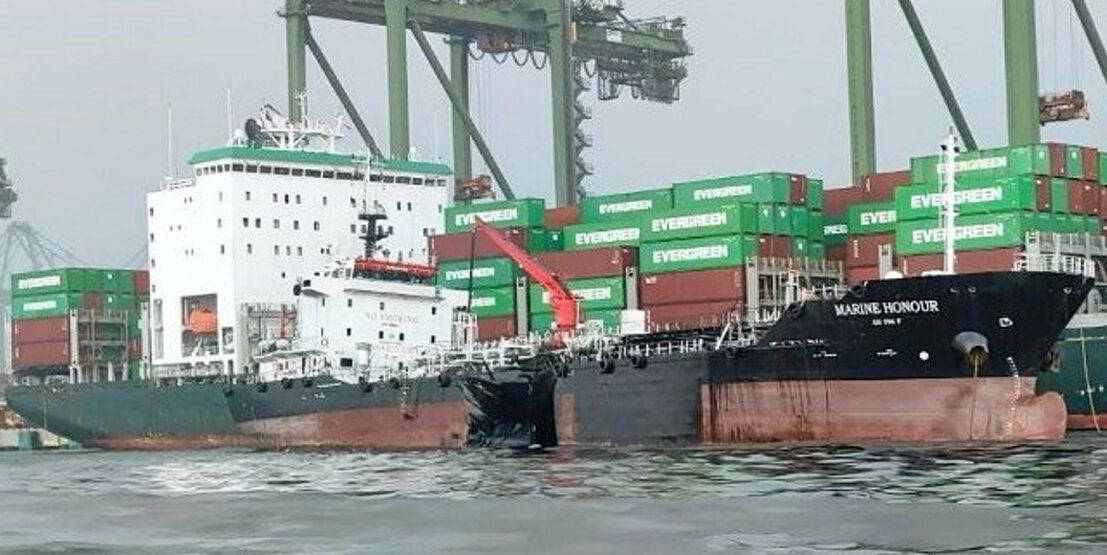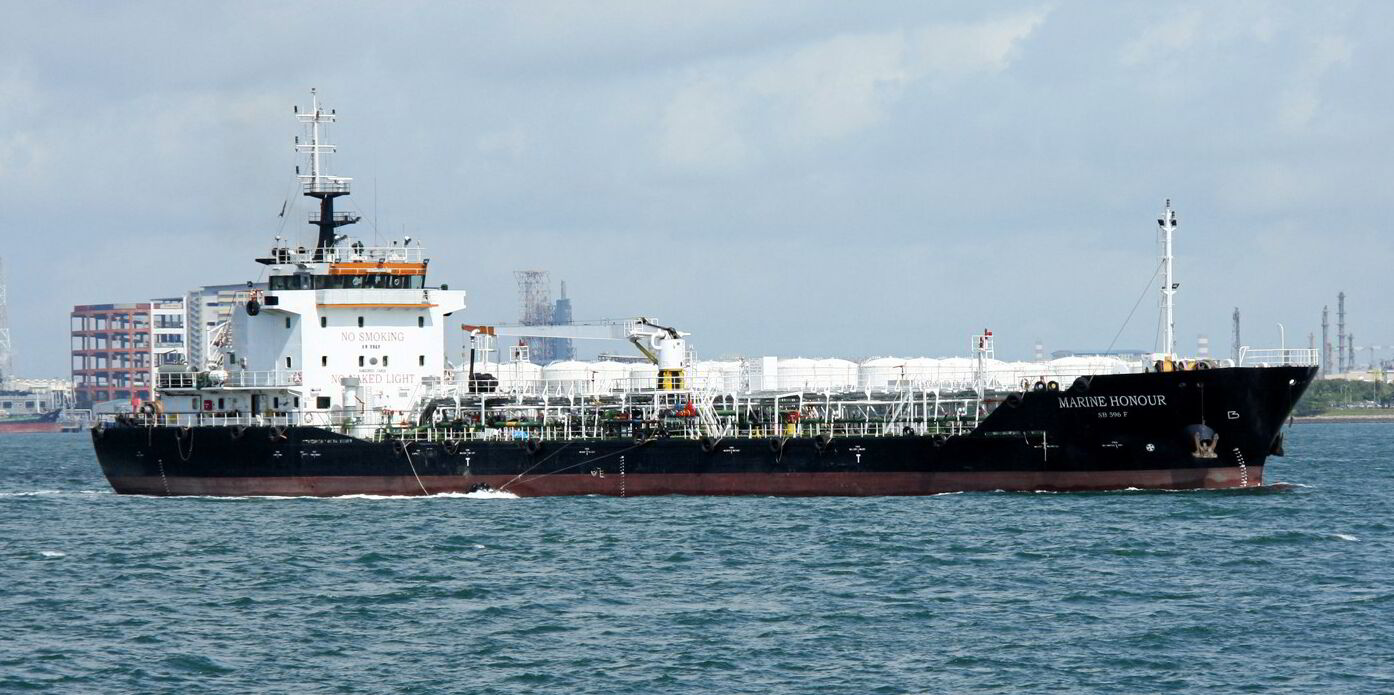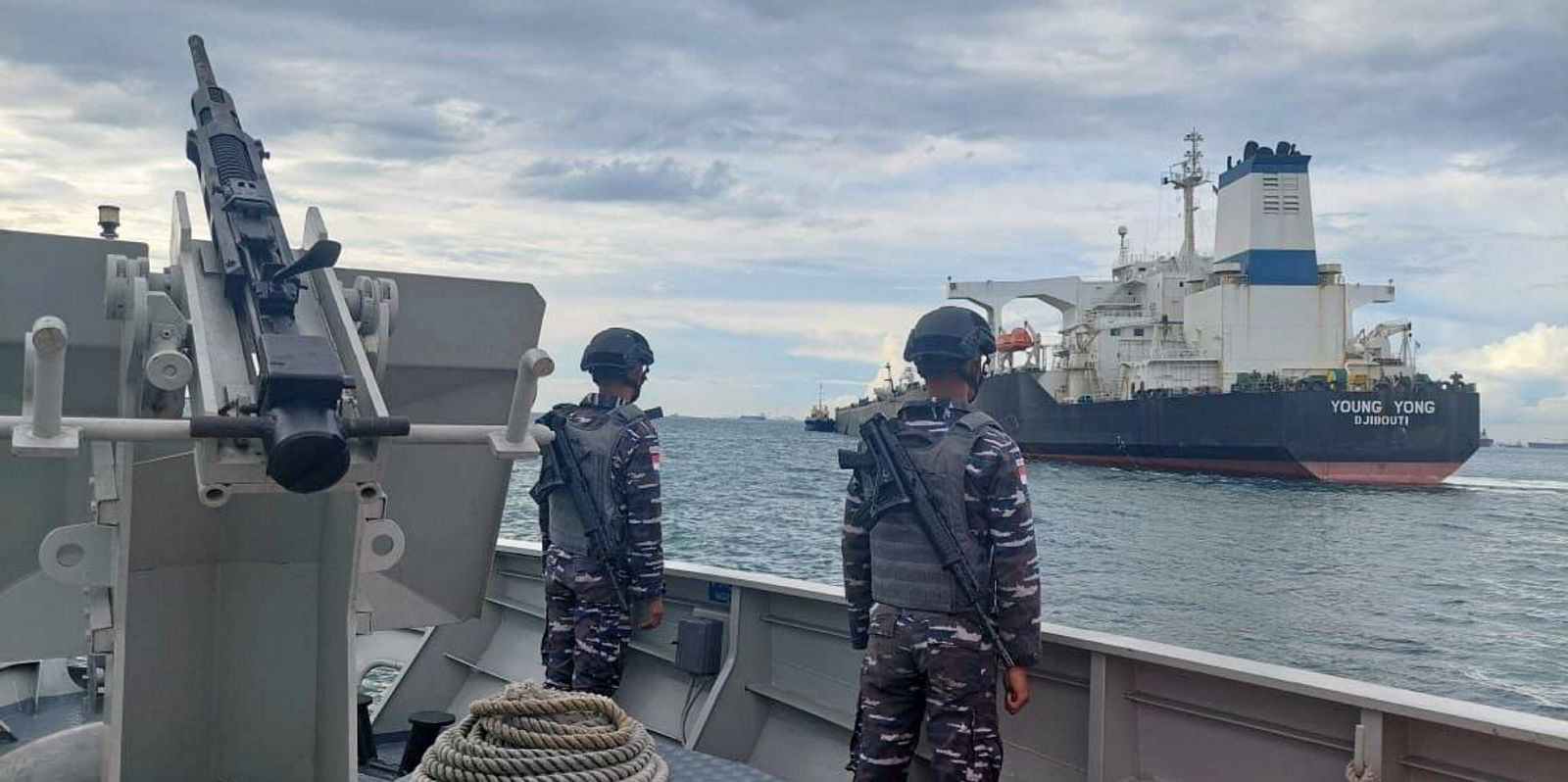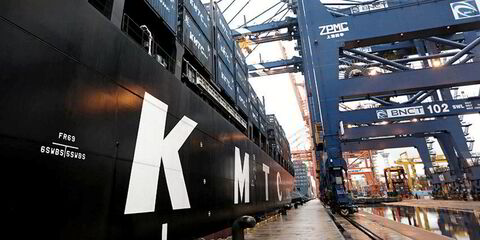The vessel at the centre of one of Singapore’s worst oil spills in over a decade suffered a sudden loss in engine and steering control before the incident, authorities say.
The 29,900-gt trailing suction hopper dredger Vox Maxima (built 2009) struck the stationary 9,000-dwt bunker tanker Marine Honour (built 2007) at the Pasir Panjang container terminal.
The Maritime & Port Authority of Singapore (MPA) said investigations are “ongoing” and that the master of the vessel and its crew are “currently assisting in investigations”.
About 400 tonnes of low-sulphur fuel oil is reported to have been spilt in the incident, according to reports in the Singapore media quoting MPA officials.
The MPA said close to 1,500 metres of containment booms have been progressively deployed since Friday at various locations while another 1,600 metres of booms will be laid over the next few days to prevent further spread of oil onto the shore.
Van Oord, which manages the Vox Maxima, said it has sent a team to Singapore to support and assist the captain and crew of the vessel.
“Both vessels are currently anchored safely and are in stable condition with some damage above the waterline. There are no personal injuries reported,” the company said in a statement.
“We are cooperating with the investigations by the authorities. As long as investigations are ongoing, we can’t provide any further substantive information in the interests of the investigations.”
The oil spill is thought to be the largest since the 2010 collision between AET’s 105,784-dwt tanker Bunga Kelana 3 (built 1998) and the 25,488-dwt bulker Waily (built 1983) which resulted in a 2,000-tonne slick in the Singapore Strait.
Singapore’s worst oil pollution incident was in 1997 when the 268,450-dwt Orapin Global (built 1975) collided with the 140,210-dwt Evoikos (built 1977), spilling more than 28,000 tonnes of oil.
An estimated 3bn tonnes of trade transited the Strait of Malacca in 2023, equivalent to almost one-quarter of total global seaborne trade, according to Clarksons.
The waterway, which links East Asia and the Indian Ocean, accounts for 45% of all crude oil trade along with 42% of LPG, 26% of cars and 23% of dry bulk trade.





